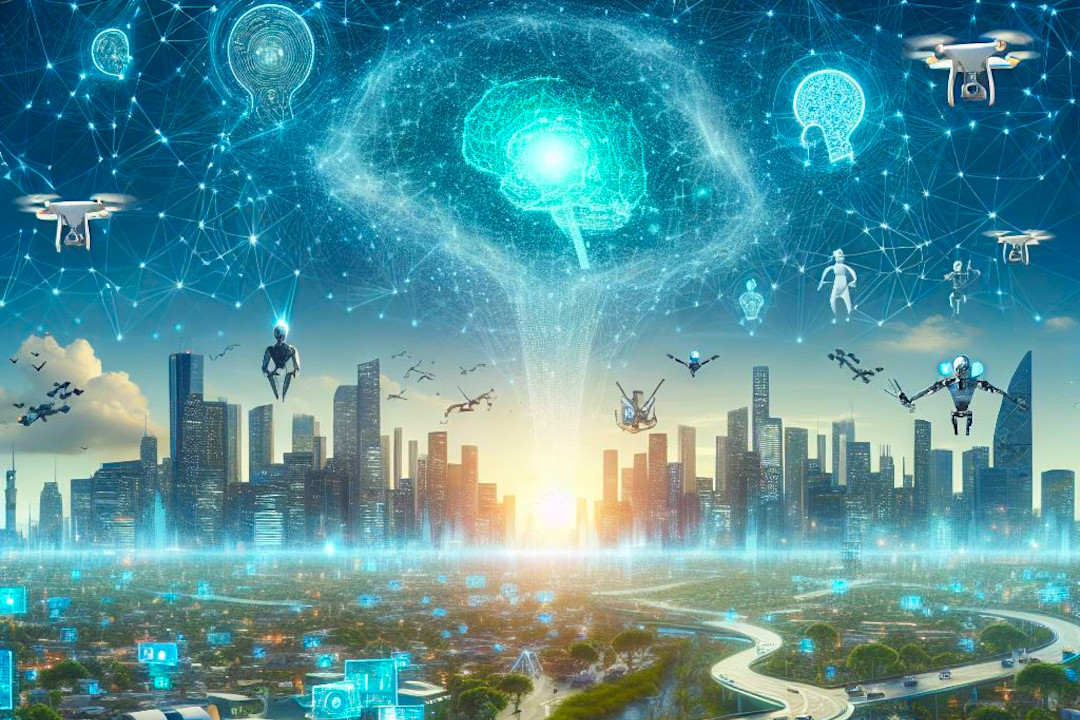U.S. bishops focus on AI in letter to Congress
A June 9 letter from the U.S. Conference of Catholic Bishops, addressed to Congress, offers ethical guidelines and policy recommendations regarding artificial intelligence.
Pope Leo XIV raised the topic of AI on the day after his election last month. He told the College of Cardinals that the Church “offers to everyone the treasury of her social teaching in response to another industrial revolution and to developments in the field of artificial intelligence that pose new challenges for the defense of human dignity, justice, and labor.”
In their letter to congressional leaders, the U.S. bishops said that they did not write as technical experts on AI, but as pastors concerned for the “life and dignity of the human person and the common good.”
While acknowledging that artificial intelligence can be a positive tool for human advancement, the bishops also laid out ethical concerns about the rapidly developing technology.
“The inherent dignity of every human person must always be at the center of technological development,” the bishops said. They stated that AI must serve to “supplement what human beings do, not replace them or their moral judgements.”
The bishops also called for equitable participation in the development of AI. There is a risk that the poor and most vulnerable will not benefit from the technology, the bishops said. The result would be a worsening ‘digital divide’ between rich and poor, leaving the latter even more vulnerable to marginalization and discrimination.
Congress must also prioritize a respect for truth when developing AI policy, the bishops said. AI models process vast amounts of data that can be manipulated or faked, leading to misinformation that can spread falsehoods and undermine the common good.
Five fundamental policy concerns
The letter also highlighted five issues that should inform AI policies.
Strengthening family life, the dignity of work, basic human rights, the pursuit of peace, and a concern for the environment must all be considered when regulating artificial intelligence, the bishops said.
Among the key concerns expressed in the letter:
– Counteracting the isolating effect of AI and protecting children from online abuse
– The threat of job displacement and the need to defend intellectual property rights
– The misuse of AI when screening people for employment, loans, immigration, etc.
– Maintaining human control over weapons systems and limiting the development of autonomous weaponry
– The increased consumption of energy and resources required to construct and run AI data centers
The bishops added that their recommendations were not intended to be exhaustive, but an “initial reflection” as Congress deliberates the matter.
“Artificial intelligence is rapidly shaping the future of our society,” said Bishop William D. Byrne of Springfield, Massachusetts, chairman of the USCCB’s Committee on Communications, in a statement released with the letter. “As pastors entrusted with the care of human life and dignity, we urge lawmakers to heed the call of our Holy Father, Pope Leo XIV, to help ensure that AI is developed with responsibility and discernment so that it may truly benefit every person.”
Five other UCCB committee chairs signed the letter with Bishop Byrne. The full text of the letter can be found here.


